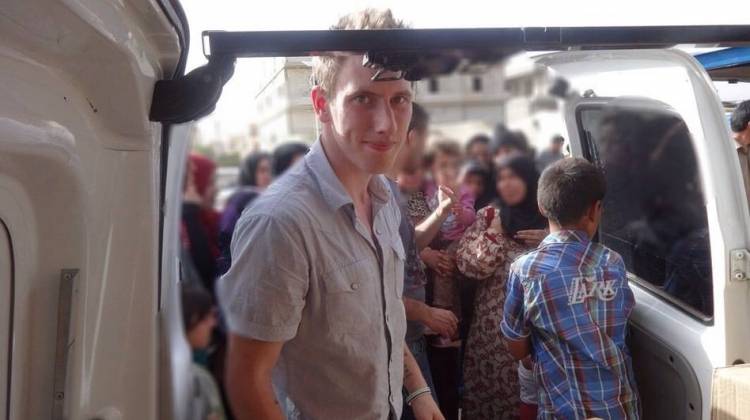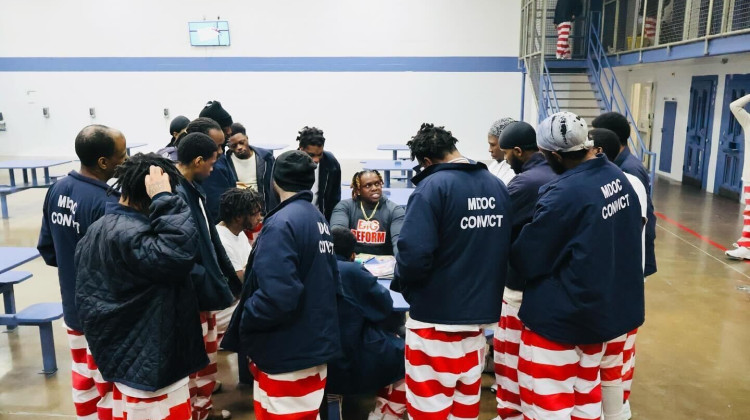The so-called Islamic State has released a new video purporting to show the beheading of Abdul-Rahman Kassig, an American aid worker in Syria who was kidnapped in 2013.
The radical jihadist group posted the video on social media early Sunday. The video and the identity of the victim has not been confirmed by U.S. authorities.
The 16-minute video "bears the Islamic State's hallmarks of slick footage and horrible violence," reports NPR's Alice Fordham.
"It differs from previous filmed deaths of American hostages," Fordham says. "It also features gruesome beheadings of Syrian soldiers, a history of the group and the U.S.-led invasion of Iraq and a meditation on the nature of Baghdad as a Sunni city."
At the end of the video, masked man with a British accent and a knife is shown standing over what appears to be a bloody head, which he claims is Kassig's, Fordham says.
The U.S. is working to confirm the video's authenticity, said Bernadette Meehan, a National Security Council spokeswoman, in a release.
"If confirmed, we are appalled by the brutal murder of an innocent American aid worker and we express our deepest condolences to his family and friends," Meehan said.
His family said he converted to Islam and changed his first name to Abdul-Rahman after his capture.
In a statement, his parents Ed and Paula Kassig said they were aware of the reports about "our treasured son" and were awaiting confirmation from the government.
"The family respectfully asks that the news media avoid playing into the hostage takers' hands and refrain from publishing or broadcasting photographs or video distributed by the hostage takers. We prefer our son is written about and remembered for his important work and the love he shared with friends and family, not in the manner the hostage takers would use to manipulate Americans and further their cause," the statement read.
Kassig served as an Army Ranger and was deployed once to Iraq, according to the Pentagon. He told CNN in 2012 that he went to the Middle East because there's a sense that there's no hope in that area of the world.
"We each get one life and that's it. We get one shot at this and we don't get any do-overs, and for me, it was time to put up or shut up," he told CNN. "The way I saw it, I didn't have a choice. This is what I was put here to do. I guess I am just a hopeless romantic, and I am an idealist, and I believe in hopeless causes."
Kassig's capture had been under a media blackout until last month, when he appeared in a video in October showing the beheading of British aid worker Alan Henning.
9(MDEwMDc1MzM3MDEzNDczOTA0MDc1MzViMQ001))
 DONATE
DONATE








 View More Programs
View More Programs



 Support WFYI. We can't do it without you.
Support WFYI. We can't do it without you.